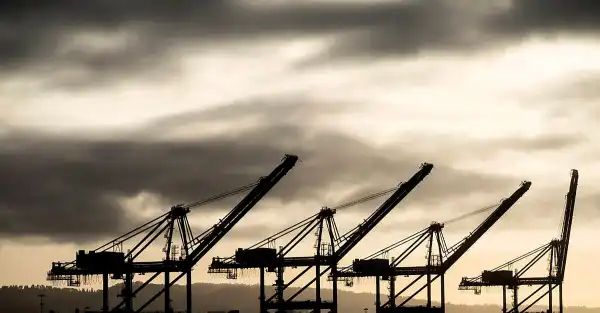
Spanish prime minister Pedro Sanchez has called a snap election for 23 July (Photo: European Union)
Outside observers may struggle to understand why although good economic news keeps rolling in, Spaniards seem to be unhappy with Pedro Sanchez, the socialist prime minister.
GDP growth is higher than the eurozone average; inflation is one of the lowest in the bloc, which has limited the hit of the war to businesses and consumers; and employment is at a record high. Even youth unemployment, traditionally the biggest headache for policymakers, seems to be falling.
To understand why the economy is doing so well, look to its tourism sector. With goods prices at record-high levels everywhere in Europe, consumers have decided to spend less on TVs and cars, and splurge on trips to sunny Spain. As a result, the sector is 30 percent larger than before the pandemic, and tourist spending in real terms is at an all-time high (23 higher higher than the previous record in 2019).
With such rosy economic news, people may rightly be wondering why Spaniards seem to be unhappy with the government. The socialists performed poorly in the latest regional election, and recent polls expect a right-wing government to put in place following the upcoming snap election on 23 July.
A scene from the Monty Python film Life of Brian inevitably comes to mind. “Apart from the aqueducts, law and order, games etc, what have the Romans done for us?”. Apart from lowering inflation; boosting the minimum wage; reforming the labour market to crack down on temporary contracts; calming Catalan separatism; disbursing EU funds etc. what have the socialists done for us?
Look closer, however, and there may be some good reasons for this apprehension.
First of all, the economy may not be doing as well as the shiny headline figures suggest.
Private consumption plummeted for the second consecutive quarter during the first quarter, and household purchasing power has fallen too.
This suggests that growth is being concentrated on a single sector (tourism), but that not everyone is feeling the boom. Moreover, the rise in interest rates has only partially passed through to the financial costs borne by indebted households and companies, meaning that internal demand could fall further, and consumers could be warily waiting for a squeeze in credit conditions.
A second reason why Sanchez may be struggling to capitalise on the good economic news is that his party is putting the spotlight on marketing itself as an antidote to the far-right, arguing that the centre-right Popular Party will form an alliance with the far-right Vox to get into power.
Yet with an alliance of far-left and separatist parties on his side, who have pressured him to push through a series of radical reforms on the housing market, and transgender laws, it makes his argument seem feeble. He should not be the one to lecture on radicalism.
It has become apparent that the rightwing parties will run a campaign based on depicting the prime minister as a radical lefty who wants to make Catalonia independent and bring Basque terrorists into government.
Instead of fighting back, it would be better for Sanchez to stick to highlighting his economic achievements during his past three plus years in power. He has plenty to show.
Source: euobserver.com



